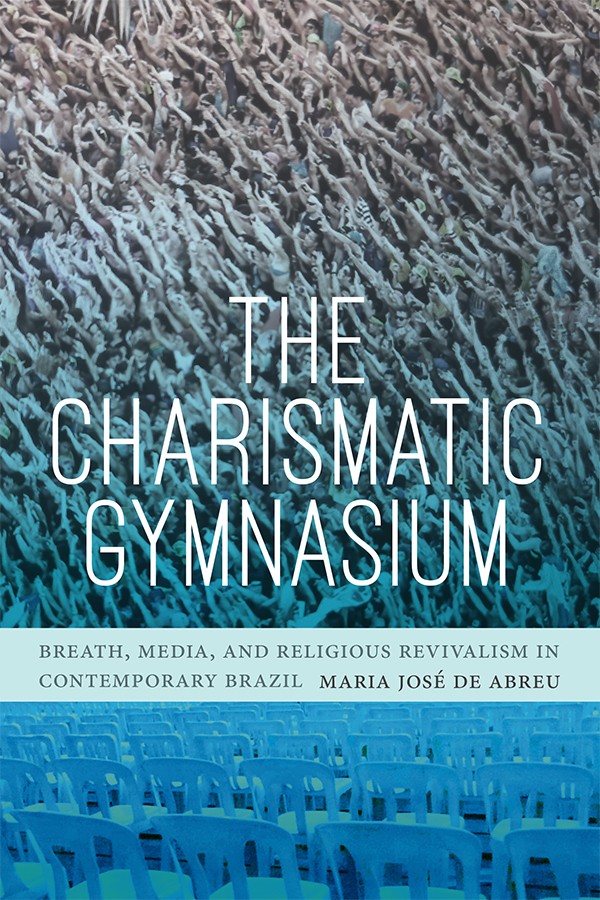About the Author
Maria José de Abreu
My work engages with a range of anthropological, philosophical, and literary debates about religion, temporality, movement, personhood, the human senses and their technological extensions. Special focus is given to logics of the political in current neoliberal governance, media and right-wing populism. My first book project “The Charismatic Gymnasium: breath, media and religious revivalism in contemporary Brazil” centers on the role of pneuma (the Greek term for air, breath or spirit) in articulating a form of Catholic revivalism to neoliberal flows through the athletic elasticity of spirit. By drawing attention to how an ethics of pauperism vitally intersects with the neoliberal ethos of flexibility, I show how paradoxes do not hinder but expand the Charismatic Gymnasium producing a fluid form of totalitarianism.
About the Speakers
Stefania Pandolfo is a Professor of Anthropology at the University of California, Berkeley: The study of theories and forms of subjectivity, and their contemporary predicaments in the Middle Eastern and Muslim world represent the main focus of my current work. My writing, teaching and research cover the following themes: narrative, trauma, psychoanalysis and the unconscious, memory, historicity and the hermeneutics of disjuncture, language and poetics, experimental ethnographic writing, anthropology and literature, dreaming and the anthropological study of the imagination, intercultural approaches to different ontologies and systems of knowledge, modernity, colonialism and postcolonialism, madness and mental illness.
Elayne Oliphant is an Assistant Professor of Anthropology at NYU: My research addresses religion’s role in the maintenance and upending of privilege and inequality. My first book, The Privilege of Being Banal: Art, Secularism, and Catholicism in Paris will be published by the University of Chicago Press in October 2020. In it, I describe how Catholicism has achieved the status of the “banal” in Parisian public life. This banality is evident in the way Catholic materiality shifts between the background and the foreground without causing consternation and concern, despite claims that all religious signs must be absent from the public sphere in France. Banality, therefore, rather than a sign of weakness, is a source of privilege. Through an ethnographic and archival study, I show how the Catholic Church in France participates in making Catholic materiality banal, in particular by aestheticizing its heritage forms. By bringing aesthetics and politics together in contemporary France, I argue that certain actors in the French Catholic Church risk fostering the kind of banality that Hannah Arendt warned against: the incapacity to take on another person’s experience of the world.
Matthew Engelke is a Professor of Religion and Director of the Institute for Religion, Culture, and Public Life. At Columbia, he is also a member of the Executive Committee of the Institute for Comparative Literature and Society. Trained as an anthropologist, Professor Engelke’s main research interests are on Christianity, secular humanism, media theory, materiality, and semiotics. He has conducted fieldwork in Zimbabwe and in Britain. He is currently working on a book about secularity and death, based on research among humanist funeral celebrants in London.
Moderated by
Brian Larkin is the Director of Graduate Studies and a Professor of Anthropology at Barnard College, Columbia University. His research focuses on the ethnography and history of media in Nigeria. Most broadly he examines the introduction of media technologies into Nigeria—cinema, radio, digital media—and the religious, political, and cultural changes they bring about. He explores how media technologies comprise broader networked infrastructures that shape a whole range of actions from forms of political rule, to new urban spaces, to religious and cultural life. He has also published widely on issues of technology and breakdown, piracy and intellectual property, the global circulation of cultural forms, infrastructure and urban space, sound studies, and Nigerian film (Nollywood). He is currently completing the manuscript for Secular Machines: Media and the Materiality of Islamic Revival, which analyzes the role media play in the rise of new Islamic movements in Nigeria and explores theoretical questions about technology and religion.
This event is sponsored by ISERP, the Society of Fellows and Heyman Center for the Humanities, the Dean of the Division of Social Science, and the Anthropology Department.

